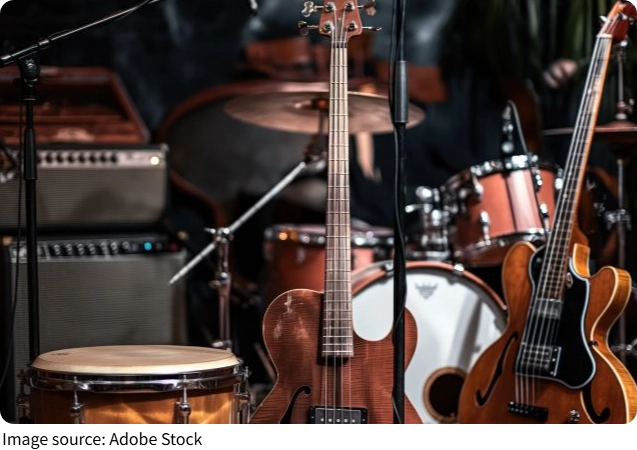Digital Music Future

When was the last time we bought a CD or sat down to listen to a full album? These days, we skip, shuffle, and stream. Music no longer lives in just radios or record stores—it's everywhere.
From our phones to our cars, even in the background of short videos, digital technology is reshaping the way we experience music. But what does that mean for musicians, fans, and the industry as a whole? Let's dive in.
We've Gone Fully Digital
Music today is mostly digital—from how it's made to how we hear it. Recording tools that once cost thousands are now apps on our phones. We can write, edit, and produce music with just a laptop and headphones. Physical sales have largely given way to streaming, where listeners access vast catalogs of music instantly. For many artists, especially new ones, going viral online can bring more fame than signing a traditional record deal.
Streaming Changes the Game
Streaming services make music easier to access—but harder to make money from. Before, artists could earn income from selling albums or songs. Now, they make just a small amount per stream. To survive, many artists need millions of streams or must focus on live shows, brand deals, or merchandise. Still, streaming has its upside. It helps independent artists reach global audiences without needing a big label. We can now discover songs from Kenya, Korea, or Brazil with one tap.
Social Media Becomes the New Stage
We've all heard songs that blew up on social media. A 15-second clip can make an unknown singer famous overnight. This shift has changed how some artists write music. Songs are now shorter, with catchy hooks at the start to grab attention quickly. As a result, music is adapting to fit the fast, scroll-heavy habits of today's audiences. While some say this takes away from deeper artistry, others believe it's just a new kind of creativity.
AI Joins the Band
Artificial intelligence is now playing a role in music creation. Some apps can generate melodies, beats, or even lyrics based on your mood or prompts. More and more artists are openly experimenting with AI tools. For producers, it's a way to test ideas quickly or enhance creativity.
But this also raises questions—who owns AI-made music? Will it replace human emotion and originality? Experts like Dr. David Cope, who's researched AI in music for decades, argue that these tools are not here to replace us, but to collaborate with us.
Data Shapes What We Hear
Behind every playlist is an algorithm. Streaming platforms use our listening habits to suggest what we might like next. On one hand, this helps us find new artists that match our taste. On the other, it can trap us in a loop of similar songs. For musicians, these algorithms can either lift them up or bury them, depending on how their music performs in just the first few seconds. That's a lot of pressure, especially for independent artists.
What This Means for the Future
We're in a time where music is more available than ever—but also more competitive. The digital age gives us tools, platforms, and chances our past generations never had. But it also demands adaptability and constant content creation. For the industry to stay healthy, we need fairer pay models, better support for upcoming artists, and clear rules about AI and data usage.
Fortunately, we're seeing steps in that direction with artist-led platforms and new copyright discussions.

So Where Do We Go from Here?
As music lovers, we play a role too. What we choose to stream, share, or support shapes the future of music. So next time you find a new song you love—don't just hit like. Follow the artist, attend their shows, or buy their merch. That support matters.
Have you discovered any artists lately through algorithm-driven recommendations? Or maybe you've tried making your own music with an app? Let's talk—how do you think digital life is changing our music world?
-
 Music’s Global PowerHow Some Songs Break Language Barriers and Unite People Across Cultures with Just a Melody
Music’s Global PowerHow Some Songs Break Language Barriers and Unite People Across Cultures with Just a Melody -
 Producer's Success PathWhat Does It Really Take to Become a Successful Music Producer in Today's Ever-Changing Music Industry?
Producer's Success PathWhat Does It Really Take to Become a Successful Music Producer in Today's Ever-Changing Music Industry? -
 Art Reflects SocietyHow does art mirror the world around us? Let's explore how creativity speaks volumes about our ever-changing society.
Art Reflects SocietyHow does art mirror the world around us? Let's explore how creativity speaks volumes about our ever-changing society.